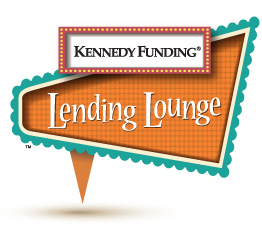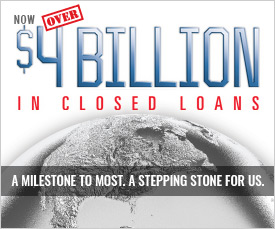 For cash-strapped, borrowers looking for a short-term financing solution for purchasing a multi-family property, warding off foreclosure or quickly closing on a land deal, a hard-money bridge loan may be the smartest option. Bridge loans are typically a financing option for borrowers who have difficulty finding financing due to poor credit, unverifiable income and/or assets, bankruptcy or foreclosures proceedings, unique properties and other financial challenges. Hard money loans may be the only solution to avoid a complete loss by granting borrowers the best interest and a quick resolution solution to avoid losing equity in their home if forced to execute a quick-sale. Additionally, most hard money lenders will allow open NODs, charge-offs, notice of sale, bankruptcies, and more.
For cash-strapped, borrowers looking for a short-term financing solution for purchasing a multi-family property, warding off foreclosure or quickly closing on a land deal, a hard-money bridge loan may be the smartest option. Bridge loans are typically a financing option for borrowers who have difficulty finding financing due to poor credit, unverifiable income and/or assets, bankruptcy or foreclosures proceedings, unique properties and other financial challenges. Hard money loans may be the only solution to avoid a complete loss by granting borrowers the best interest and a quick resolution solution to avoid losing equity in their home if forced to execute a quick-sale. Additionally, most hard money lenders will allow open NODs, charge-offs, notice of sale, bankruptcies, and more.
Because interest rates are determined largely on the value of the property, hard-money lenders do not rely solely on the creditworthiness of the borrower. But your credit score still matters. Kevin Wolfer, president and CEO of Kennedy Funding and an industry leader has created specially tailored funding solutions for credit challenged customers seeking commercial bridge loans for acquisition, construction, land, development and other projects.
Creditworthiness will play a part in whether or not you’re approved, the rates and terms you receive and the amount of deals for which you receive financing. But unlike traditional lenders, your credit score is not the only component in the decision making process. Hard money lender such as Kennedy Funding do check credit, not necessarily for credit scores, but to check for bankruptcies, foreclosures, charge offs and collections. Borrowers with less than ideal credit have less trouble securing a hard money loan than a traditional loan because they’ll be required to provide more capital up front. Because the loan is collateral based, lenders look for ability to repay. which means they look really closely at the proper,
Interest rates for hard money can range between 10-20%., sliding up to 25-30% if the borrower defaults on the loan. To protect their investment, lenders want to ensure that the property holds sufficient equity over and above the amount of the loan to minimize risk and potential loss. Typically, borrowers get a hard money loan of 50 to 70 percent loan to value. The cap is typically as high as the law allows, and can vary by state. Hard money lenders typically charge points usually ranging between 4 to 8 origination points on a loan. Most hard money loans are structured as balloon payments due 1 to 2 years after the loan is issued. Some even offer flexible payments such as an interest-only option. Many also offer generous approval terms such as “1 credit score OK”, no asset or income verification, and no verification of employment.
Slight turbulence in your financial life won’t automatically disqualify a borrower. To find out if you qualify for a hard money loan, Wolfer suggests finding a lender who specializes in the type of loan for which you are looking.







